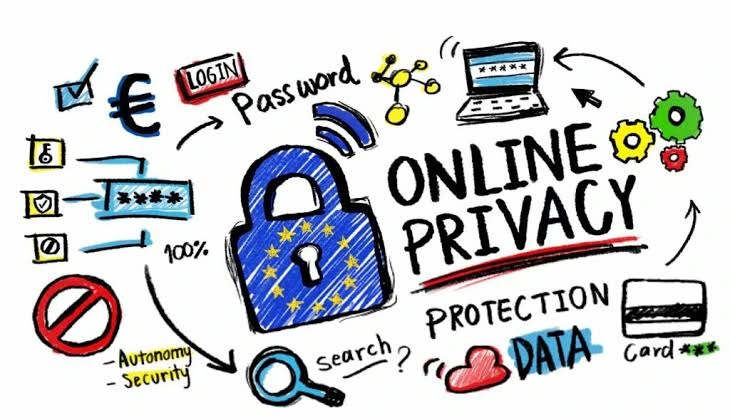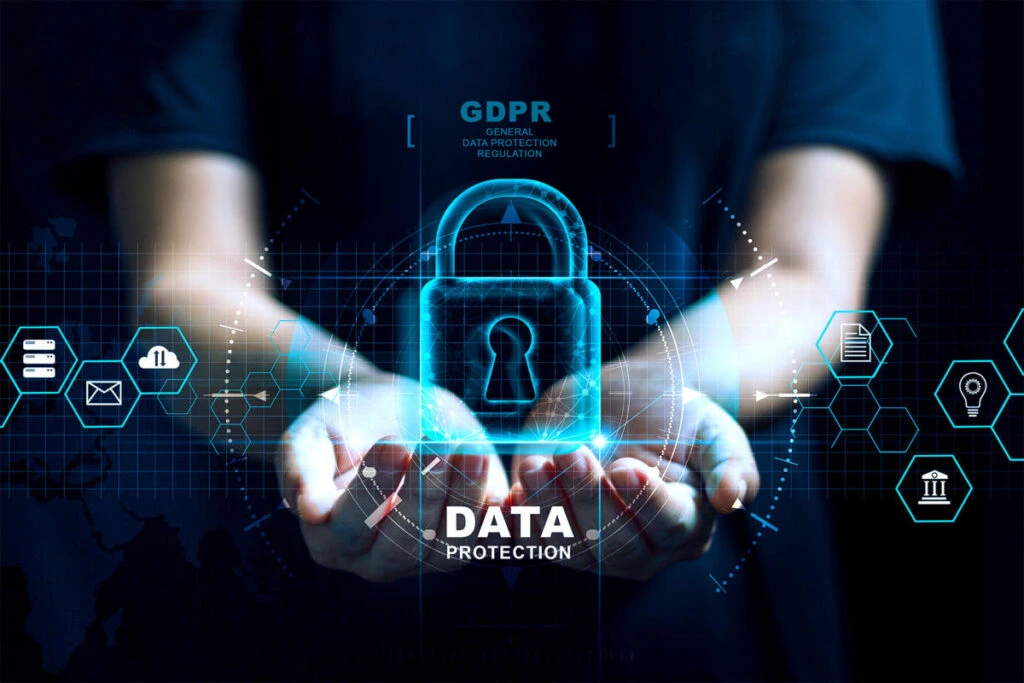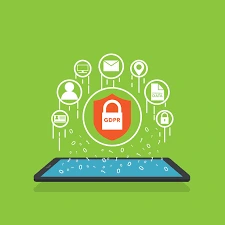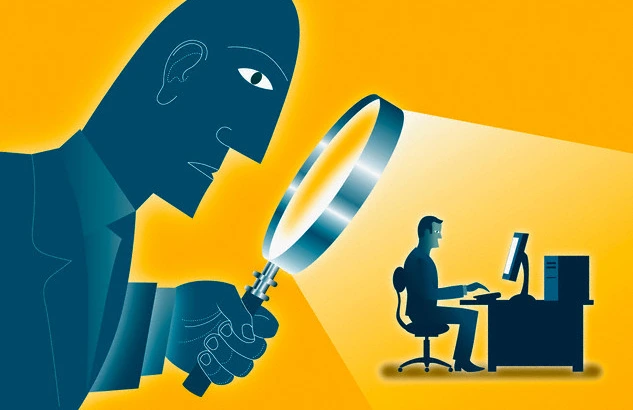Digital privacy refers to keeping your personal information safe while using the internet. It includes private things like your name, address, phone number, email account or even things like games you play, videos you watch or even the things you search on Google. Every time we go online, we leave a piece of information behind, and it is known as digital footprints.
Whenever we talk about digital privacy, it means that people should be able to choose what you share online and who can have access to it. It also means any app, company or website should not take your information until and unless you don’t allow them. In today’s world, where online scams are increasing a lot, protecting your information is very important. Digital privacy helps protect your information from scammers or companies who want to earn money by selling your data.
Importance of Digital Privacy

Digital privacy is very important in today’s digital age to keep you and your information safe. Invading your online information is like a stranger walking into your house and looking at all the things you own. Feels scary, right? The same thing happens online if your information is not protected.
It is scarier because with your information, a stranger could do anything; they could take your money, pretend to be you or even say bad things in your name. Some companies also collect your data and use it to share ads with you or sell it to other businesses This is called cookies. Whenever you click on accept cookies, companies have access to your information. They do not help you; rather, they just want to make money.
When you protect your digital privacy, you are keeping your personal space safe. You are saying, “This is mine, and you can’t take it without my permission.” That’s why it matters so much.
Who Collects Our Data and Why
As discussed above, many companies collect your data in the form of cookies whenever we go online. For example, whenever you search for anything on Google, you start getting related ads on other apps, such as Instagram. It is because Google and Instagram keep an eye on you and your searches. Even big companies like Google, YouTube, Facebook, Instagram or your favourite game apps also collect your information. So it’s very important to maintain digital privacy.
The question might be, What will they do with our information? No, they will not steal your money. They collect it for a few reasons:
- They want to know what you like so they can show you more of it.
- To sell their products by showing you ads that match your interests.
- They want to keep you online longer so you keep using their app or website.
- Sometimes these companies sell your data to other companies so they can make money.
Many times, they collect this information without asking clearly. Even if they do ask, the message is often written in long, confusing words, so most people just click “Accept” without really reading what they are agreeing to.
How Do Companies Use My Data, and How Can I Control It?
Companies often use your data to make money. For example, if you search for “women’s jeans”, they will start showing you ads related to your searches. You might have noticed that on Instagram, if you text your friend you are thinking of buying a new pair of shoes, Instagram starts to show you jeans ads. This is how it works. They even collect information on when you get online and how much time you spend on their website. It is used to keep you engaged so that they can show you more ads and earn more money.
You can definitely take control of your data by just being aware. Here’s what you can do:
- Privacy settings: Read the privacy settings carefully of every website or app you log in to.
- Do not accept cookies: Strictly decline all cookies and try not to log on to sites which don’t allow turning off cookies.
- Location: Turn off your location from your phone settings so any apps or websites will not be able to track your location.
- Incognito mode: Try to search on incognito or private mode so the company cannot keep track of your searches.
- Unnecessary apps: Delete all the unnecessary apps, which you do not use often.
You don’t have to give away your information just because a website asks for it.
Differences Between Data Protection vs Data Privacy
Data protection and data privacy might sound the same to you, but they are quite different.
Data privacy is about the power to choose what information you share and who can have access to it. For example, you share your date of birth on a social media platform, and here you can choose if you want to share it with your friends or everyone.
Data protection is protecting your data from outsiders. It is keeping your data secure and safe so that no one can use it for their misdeeds or steal it. For instance, a website may employ passwords, firewalls, or security software to safeguard your data from hackers.
So, privacy is about control—you decide what to share. Protection is about safety—keeping what you share secure. Digital privacy includes both, as you need both to stay safe online.
How to Protect Your Digital Privacy?

There are many simple ways you can maintain digital privacy. You don’t need to be a computer expert to stay safe. Just follow these tips:
- Don’t share too much personal information. Try not to post your full name, address, phone number, school name, or photos that show where you live.
- Use strong passwords. Make sure your passwords are hard to guess. Don’t use “1234”, your name, or your pet’s name. Use a mix of letters, numbers, and symbols.
- Think before you click. Some links can lead to fake websites or download viruses. Only click on links from people you trust.
- Be careful with photos. Before you post a picture, ask yourself if you’d be okay with everyone seeing it—even people you don’t know.
- Turn off location settings unless you really need them. You don’t want strangers invading your digital privacy.
- Ask a trusted adult if you are not sure. Never be afraid to ask for help.
Staying private online is just like being safe at school or at home. Be smart and make good choices to maintain digital privacy.
Are Social Media Platforms Invading My Privacy?
The answer is yes—sometimes they do. When you use social media platforms like Facebook, Instagram, Snapchat, or TikTok, they collect a lot of information about you, thus invading your digital privacy. They know what you post, who your friends are, what you like, what you comment on, and even how long you look at a picture or video.
They use this information to keep you on the app for as long as possible. The more time you spend there, the more ads they can show you. That means they make more money.
Some social media apps also collect information even when you’re not using them. They may track other apps you use or where you go. That can feel like someone is following you all the time.
You can make your social media more private by:
- Making your account “private” so only your friends can see your posts.
- Turning off tracking in your phone’s privacy settings.
- Not sharing your location or tagging where you are.
- Deleting old posts or photos you no longer want online.
It’s your account. You get to decide what’s private and what’s not.
What Are the Risks of Sharing Personal Information Online?
When you share too much online, it can lead to problems. These are some of the risks:
- Identity theft: Someone could take your name, photo, or info and pretend to be you.
- Cyberbullying: If people know too much about you, they might use it to say mean things or hurt your feelings online, invading your digital privacy.
- Scams: You might get messages that look real but are fake. They try to trick you into giving your password or money.
- Strangers finding you: If you post where you are or where you live, strangers could try to find you.
- Embarrassment: Something funny today might be embarrassing tomorrow. Once it’s online, it’s hard to delete forever.
That’s why it’s always smart to stop and think before sharing anything personal.
Personal Information Privacy Concerns and Crimes in the Digital Age

Today, more crimes are happening online than ever before. People can be hurt even if they never leave their homes, just by using a phone, tablet, or computer. Some of these crimes include:
- Hacking: Someone breaking into your digital privacy to steal your info.
- Phishing: Fake emails or messages that trick you into giving your password.
- Data leaks: A company you trusted loses your private info by accident.
- Online stalking: Someone using your photos, posts, or location to follow you in real life.
- Fake people: Strangers pretending to be someone else to gain your trust.
These are serious problems, and many countries now have laws to help stop them. But even with laws, the best way to stay safe is to be careful and protect your information.
Final Thoughts: Be Smart, Stay Safe
The internet is a wonderful place to learn, play, and talk with friends. But just like in real life, you need to be smart and protect yourself. Your digital privacy helps you stay safe, avoid danger, and keep control of your personal life.
Here’s what to remember:
- Think before you share.
- Use strong passwords.
- Check your settings often.
- Don’t talk to strangers.
- Ask for help if something feels wrong.
You wouldn’t leave your front door open at night. So don’t leave your online world open either. Lock it up with smart choices and maintain your digital privacy every time you go online.



